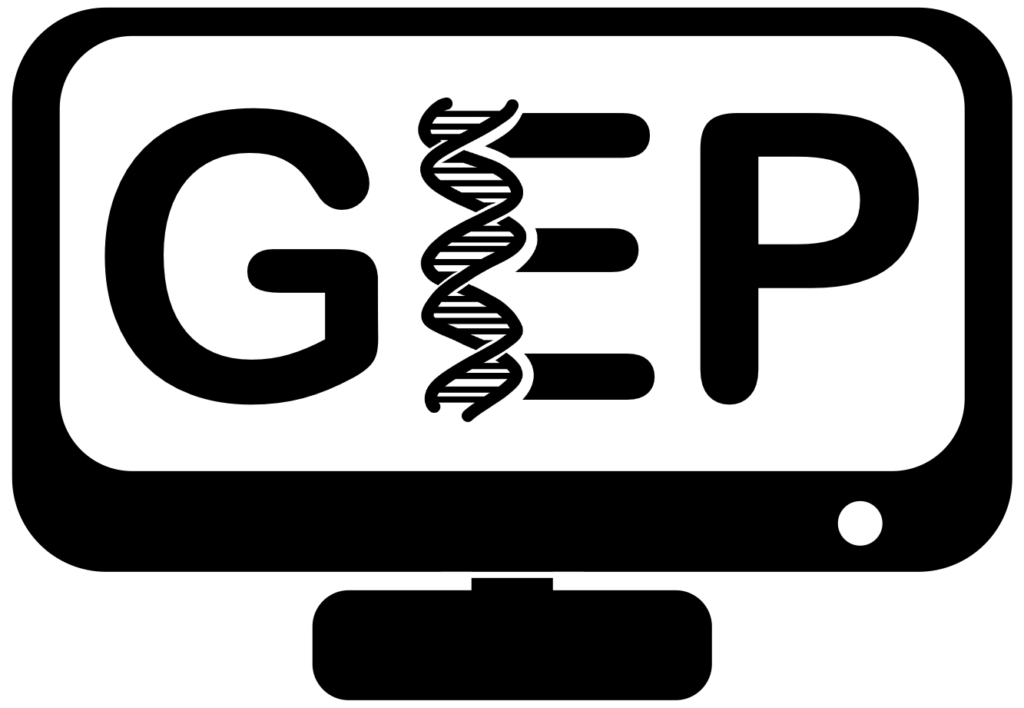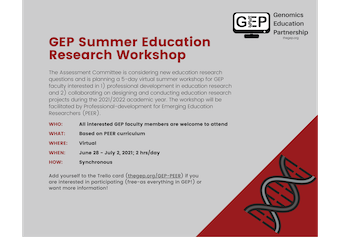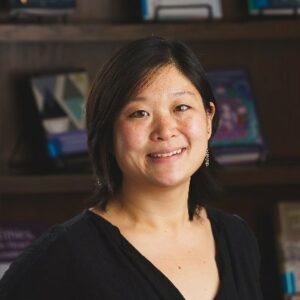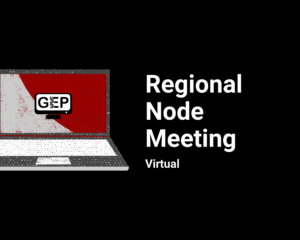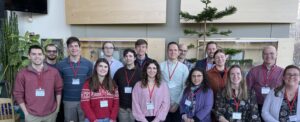To provide opportunities for professional development in Discipline-Based Education Research (DBER), GEP offered a week-long summer virtual workshop to the faculty interested in developing DBER skills. The goals of the workshop were to increase DBER knowledge and skills among GEP faculty and develop collaborative education research plans and working groups for 2021-2022. The workshop was based on the curriculum developed by the Professional development for Emerging Education Researchers (PEER), an NSF-funded program (NSF grant # 2025174, 2025169, 2025170). The curriculum was tailored to meet the needs and interests of GEP members and to include sample assessments from GEP-based courses. GEP Co-PI Anya Goodman led the organization of the workshop in consultation with the GEP Assessment Committee. GEP participants were recruited by advertising in the GEP newsletter, on Trello, and at the Alumni Workshop, and the registration included questions about participant goals and interests which was used for tailoring the workshop curriculum. Twenty GEP members participated in the workshop that took place two hours a day for five days (June 28-July 2) and included activities related to developing research questions, identifying theoretical frameworks, defining the scope of the project, identifying sources of data, ethics of human subjects’ research and co-authorship, and developing a project plan.
Post-workshop, 13 participants (59% of registrants) completed an exit survey and 12/13 respondents (92%) reported that the workshop met their expectations and 11/13 participants reported that they are extremely likely or somewhat likely to pursue a publication based on what they learned at the workshop. When asked to what extent the workshop met specific goals: 12/13 respondents agreed that the workshop increased their DBER knowledge, 11/13 that it helped develop education plans, and 13/13 that it helped identify potential collaborators for education research projects. Among the most valued activities were generative writing and opportunities to discuss ideas and projects in breakout rooms. The most common suggestion for improvement was to add more time for discussion. The knowledge and skills from the workshop are currently used by several working groups developing three manuscripts: community college implementation of the GEP CURE, adaptation to emergency instruction during the COVID-19 pandemic, and an online professional development program for new GEP faculty.
